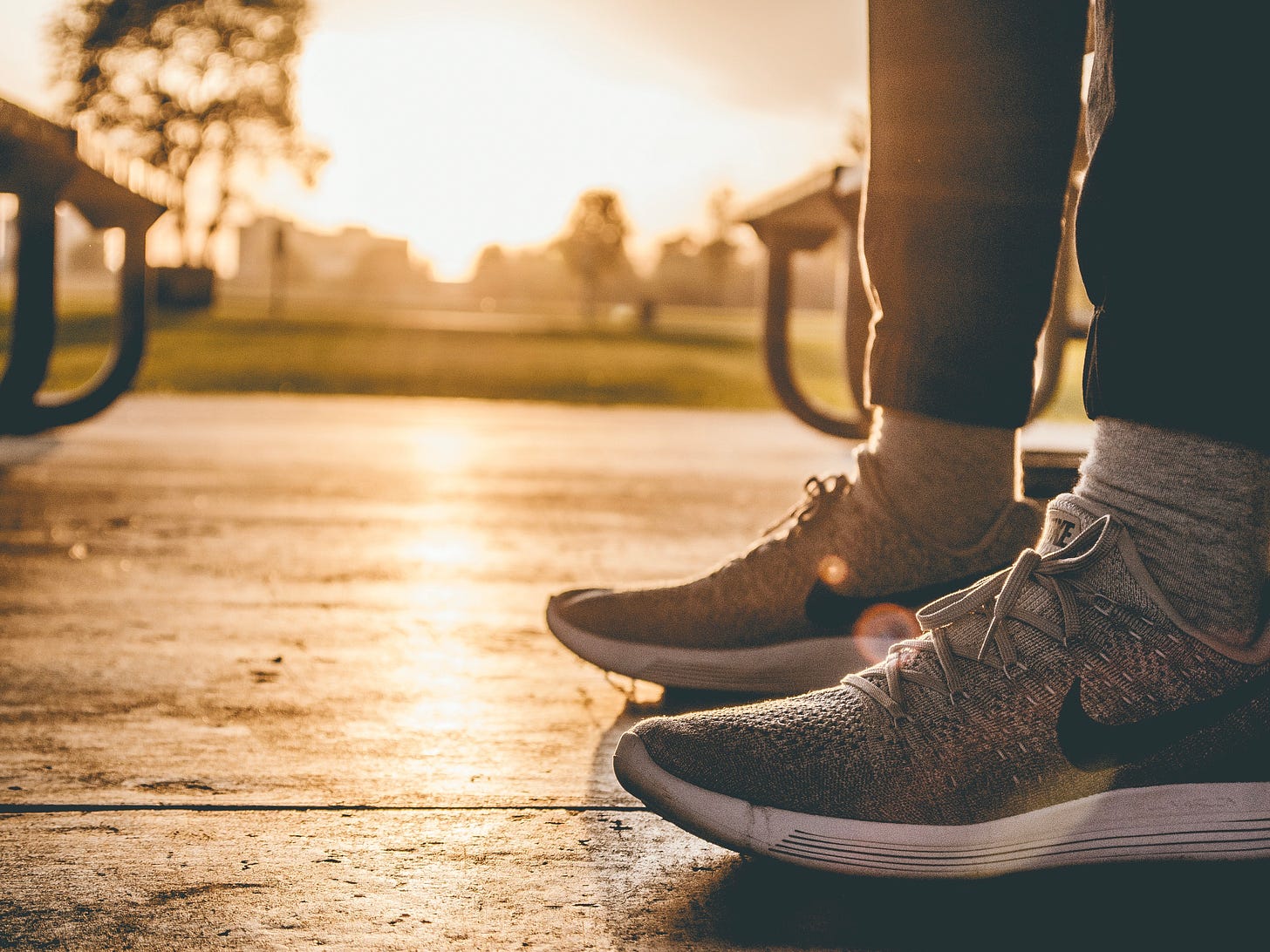My 3-3-3 rule to optimize deep sleep through exercise and nutrition
Last week, I shared my 10-10-10 rule to set up the foundation for 90 minutes of deep sleep.
While light is the most important synchronizer that tells our brain when it’s day and when it’s night, there are two other major “time givers” that can make or break our deep sleep: exercise and nutrition.
However, the crucial thing isn’t how to work out or what (not) to eat. Instead, it’s all about timing things right – notably in the last 3-8 hours before going to bed.
That's why I created another straightforward and memorable rule for optimizing deep sleep: The 3-3-3 rule.
The first “3” is about timing exercise. Getting plenty of movement in the morning, afternoon and early evening is great for promoting alertness during the day and preparing us for deep sleep in the first half of the night. That includes light to moderate exercise, such as walking or taking the stairs, and intense exercise, like going for a run or lifting weights. In the evening, however, intense exercise is something we should avoid. Getting into deep sleep in time requires us to drop our core body temperature. Intense exercise, however, increases that temperature – and as a result, we’ll end up spending the first half of the night mostly in light sleep, without getting enough deep sleep. That’s why you should avoid intense exercise three hours before bedtime.
The second “3” is about when to eat. As I’ve described in an earlier post, fasting in the first hours of the day is a great way to promote alertness and productivity. As it turns out, fasting in the last hours of the day is even more advisable – because it’s vital for getting into deep sleep. Eating activates our digestive tract, which increases our core body temperature for several hours. Like intense exercise, the increased temperature destroys our chances of getting enough deep sleep in the first half of the night, and keeps us in light sleep instead. So, have your last meal of the day at least three hours before bedtime.
The third “3” is about the timing of caffeine. Consumed in the morning and early afternoon, caffeine helps us stay alert because it reduces our so-called “sleep pressure”. While that’s a good thing during most times of the day, it’s precisely the opposite of what we want at night. Similar to a late intense workout or meal, it prevents us from getting deep sleep in the first half of the night. I'll delve deeper into the fascinating relationship between "sleep pressure" and caffeine next week. For now, I'll leave you with the takeaway: Don't consume caffeine later than 3 pm.
In short, here's my 3-3-3 rule to time exercise and nutrition for 90 minutes of deep sleep at night: Avoid intense exercise three hours before bedtime, have your last meal three hours before bedtime, and stay away from caffeine after 3 pm.
I’ve been researching sleep – and self-experimenting on it with the Oura ring – for many years. As I've learned, it's hard to overstate the importance of the 3-3-3 rule for getting 90 minutes of deep sleep at night.
Try it out for yourself and see what happens.
And if you liked this post, please share it with one person who might benefit from learning how to get better sleep without sleeping longer.
Until next week,
Christian


